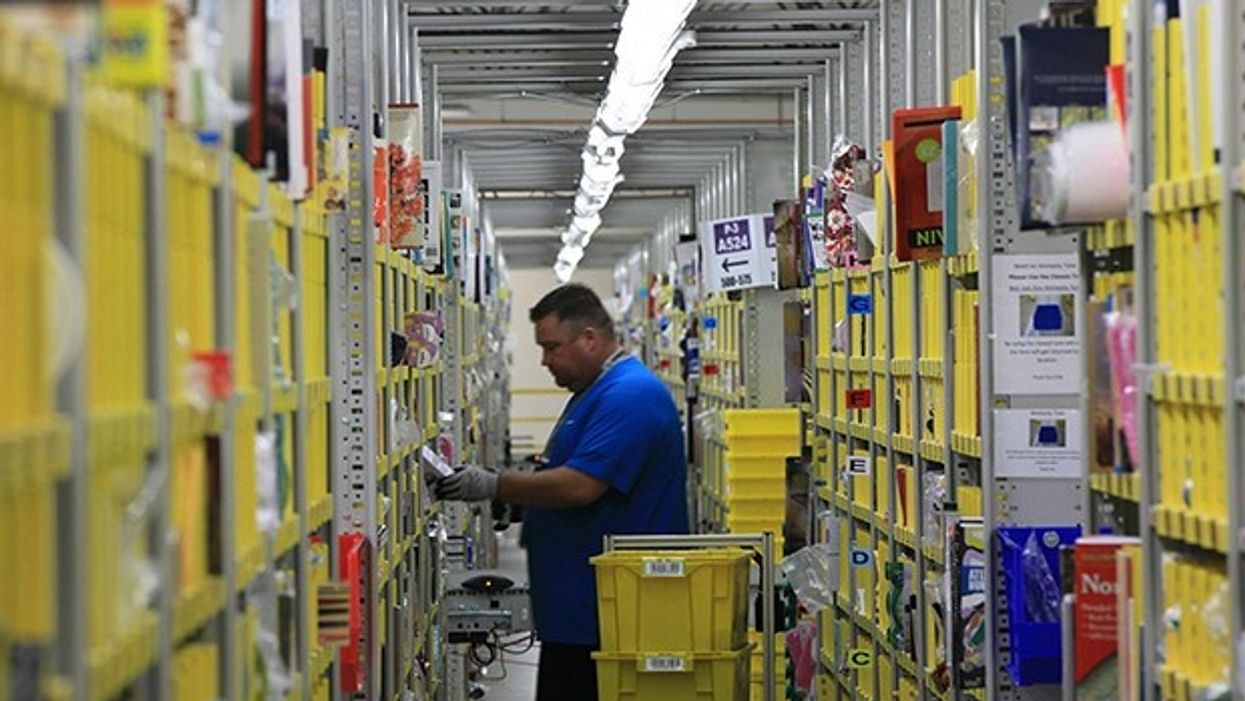
Employees working for companies deemed essential during the COVID-19 pandemic are striking over concerns that their employers are not doing enough to keep them safe.
While many Americans are able to work from home and practice social distancing, these workers are providing food, medicine, and other vital supplies to the country while putting themselves at risk of contracting the coronavirus from customers and colleagues.
The Centers for Disease Control and Prevention states Monday that there have now been more than 140,000 confirmed and presumed cases of COVID-19 in the United States.
On Tuesday, staffers at Whole Foods opted to call in sick to demand better protections after several workers for the grocery chain tested positive for the virus.
Workers at a Staten Island warehouse run by Amazon, the parent company of Whole Foods, went on strike Monday after an employee there tested positive. Organizers said dozens walked out, while the company estimated the number to be about 15.
At the same time, workers for the Instacart grocery delivery service went on strike over safety conditions and for hazard pay.
Around the country, at-risk workers have also gone on strike at McDonald's restaurants in California; fast-food restaurants in North Carolina; a Kroger grocery warehouse in Tennessee; the Bath Iron Works shipyard in Maine; a Perdue Farms plant in Georgia; and a Fiat Chrysler plant in Michigan. Sanitation workers in Pennsylvania and bus drivers in Alabama have also walked out.
"We want better equipment, protective gear. We have no masks. We want hazard pay," a Pittsburgh garbage collector told local media last week. "We risk our life every time we grab a garbage bag."
Instacart shoppers, as the grocery delivery service workers are called, complained Sunday that the company had only just agreed to provide hand sanitizer to workers. "We had been asking for hand sanitizer for many, many weeks," they wrote in a Medium post. "But apparently the company is capable of sourcing some with 2 days of work? Where was this before? Where were these efforts back when Shoppers first began asking for it?"
They added, "It's abhorrent that it took this long for them to act, but on the bright side, it shows that a strike will work to change their behavior."
While the specific demands vary, in general, workers are asking for paid sick leave, hazard pay for those risking their lives to do their essential jobs during the outbreak, and increased safety measures. These include basics such as gloves, masks, sanitizer, soaps, closure and cleaning of facilities with confirmed coronavirus cases, as well as more social distancing.
On Monday, Amazon confirmed that it had fired a Staten Island warehouse employee named Chris Smalls who had organized a strike at his facility.
"Amazon would rather fire workers than face up to its total failure to do what it should to keep us, our families, and our communities safe," Smalls said in a statement. "I am outraged and disappointed, but I'm not shocked. As usual, Amazon would rather sweep a problem under the rug than act to keep workers and working communities safe."
The company claimed Smalls was fired for refusing to remain quarantined after close contact with a colleague who tested positive. "Despite that instruction to stay home with pay, he came onsite today, March 30, further putting the teams at risk," a spokesperson told CNBC. "This is unacceptable and we have terminated his employment as a result of these multiple safety issues."
New York State Attorney General Letitia James didn't buy that explanation.
"At the height of a global pandemic, Chris Smalls and his colleagues publicly protested the lack of precautions that Amazon was taking to protect them from COVID-19. Today, Chris Smalls was fired," James said in a press release on Monday. "In New York, the right to organize is codified into law, and any retaliatory action by management related thereto is strictly prohibited. At a time when so many New Yorkers are struggling and are deeply concerned about their safety, this action was also immoral and inhumane."
The Trump administration estimated this week that 200,000 or more Americans could die from the pandemic.
Published with permission of The American Independent Foundation.








